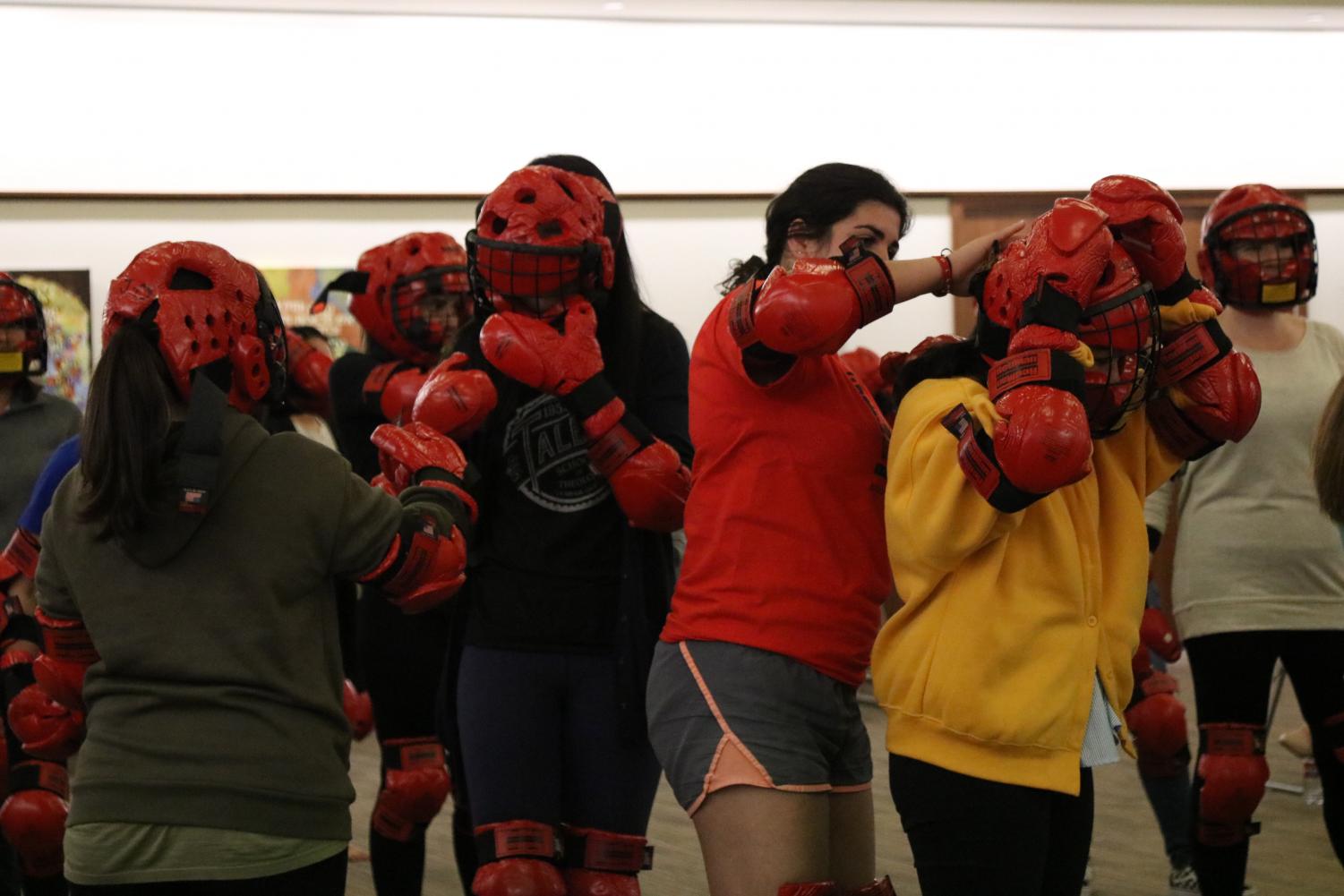In recognition of Women’s History Month, professor of communication studies Tim Muehlhoff and Campus Safety Chief John Ojeisekhoba spent Wednesday night teaching female students, faculty and staff self-defense skills. The skills included verbal de-escalation techniques and a short session on Rape Aggression Defense Systems as well as a message from founder of the Graceful Warrior Project, Kelly Kelly.
VERBAL METHODS
Kelly began the night discussing how women in communities around the world are perceived as vulnerable and inferior because of their femininity. However, she believes women and men need to make the world a safer and more inclusive place for their daughters and granddaughters.
Muehlhoff discussed empowering people who are at risk by emphasizing the importance of de-escalating a situation verbally before it becomes physical. He defined self-defense as leaving a situation unharmed at any cost, while also showing how a negative communication cycle produces violence. Attendees participated in both escalating and de-escalating a situation.
“Besides knowing how to defend yourself physically, it’s important to know how to verbally talk down a situation like that,” said freshman biology major Kirsty Ponla. “One of the things that I thought was very interesting was how you were supposed to separate yourself, like make sure there was a distance between you and your assailant or possible assailant.”
KNOWLEDGE IS POWER
Ojeisekhoba highlighted the importance of knowledge as power through California’s Megan’s Law Website to show sex offenders in local areas. In reflecting, senior director of University Communications and Marketing and host of the event Brenda Velasco said she felt impacted by learning about the number of sex offenders.
“It’s a reality that we are just kind of oblivious to,” Velasco said. “Just having knowledge of what exists and then having the tools to be able to defend ourselves just really impacted me in just bringing it all to the forefront of my mind, that this is something that we as women have to deal with and we have to know how to defend ourselves and we have to know what environments we live in. So, we can’t just ignore it. We have to actually be proactive.”
PRACTICING DEFENSE SKILLS
In continuing the discussion on self-defense, Ojeisekhoba instructed attendees on how to use the free pepper spray bottles offered at the event. He then invited 25 of the women to practice skills such as a defense position, punching high and kicking low. After learning the moves, the women practiced on four men, each fighting two men at a time.
“At first I was kind of embarrassed to try… my hand at doing all the defensive poses and all the movements, especially verbalizing like, ‘No,’” Ponla said. “I thought, ‘Oh, I don’t know if I could ever do that in a real situation.’ But once we got into the rhythm of doing all of the movements and learning the moves, it felt really empowering.”
The attendees learned more than concepts, which junior English major Hannah Black says she appreciated.
“It goes beyond just visualizing the skill, like actually applying it so that you know if you actually ended up in that kind of situation you’d actually be able to use it,” Black said.
While Ojeisekhoba hopes women never have to use these techniques, he left amazed.
“It was a thing of joy,” Ojeisekhoba said. “Teaching skills for just 10 minutes and for these women, about 25 of them, that participated to actually implement those skills, to see them gain some confidence, to see them feeling empowered and that, ‘You know what, I have some viable options that I can use to defend myself.’ It brings me joy that—God forbid that they have to use any of the skills that we taught tonight—but if in the event they find themselves in a compromising situation that there’s viable options.”











